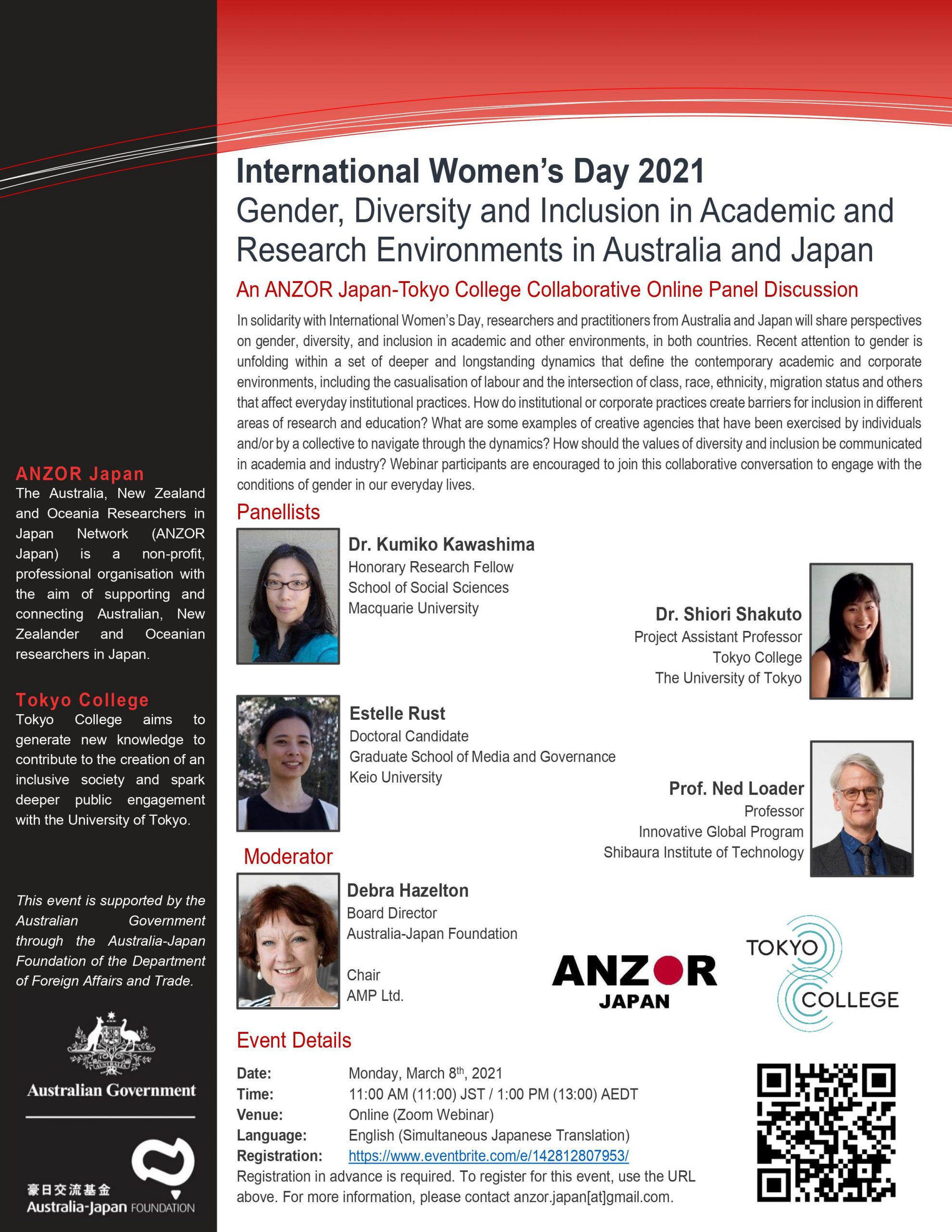【IWD Webinar Series】Gender, Diversity and Inclusion in Academic and Research Environments in Australia and Japan

| Date(s) | Monday, 8 March 2021, 11:00 am-12:30 pm |
|---|---|
| Venue |
Zoom Webinar (Register here) |
| Registration | Pre-registration required |
| Language | English with Simultaneous Japanese Translation |
| Abstract |
In solidarity with International Women’s Day, researchers and practitioners from Australia and Japan will share perspectives on gender, diversity, and inclusion in academic and other environments, in both countries. Recent attention to gender is unfolding within a set of deeper and longstanding dynamics that define the contemporary academic and corporate environments, including the casualisation of labour and the intersection of class, race, ethnicity, migration status and others that affect everyday institutional practices. How do institutional or corporate practices create barriers for inclusion in different areas of research and education? What are some examples of creative agencies that have been exercised by individuals and/or by a collective to navigate through the dynamics? How to communicate the values of diversity and inclusion in academia and industry? Webinar participants are encouraged to join this collaborative conversation to engage with the conditions of gender in our everyday lives.
This is a joint event in collaboration with The Australia, New Zealand and Oceania Researchers in Japan Network (ANZOR Japan). ANZOR is a non-profit, professional organisation with the aim of supporting and connecting Australian, New Zealander and Oceanian researchers in Japan.
This event is supported by the Australian Government through the Australia-Japan Foundation of the Department of Foreign Affairs and Trade. |
| Speaker Profile |
Speakers: KAWASHIMA Kumiko (Honorary Research Fellow, School of Social Sciences, Macquarie University) Estelle Rust (Doctoral Candidate, Graduate School of Media and Governance, Keio University) Ned Loader (Professor, Innovative Global Program, Shibaura Institute of Technology) SHAKUTO Shiori (Project Assistant Professor, Tokyo College, University of Tokyo)
Moderator: Debra Hazelton (Chair, AMP Ltd) |
| Organized by | Joint Event: The Australia, New Zealand and Oceania Researchers in Japan Network (ANZOR Japan)/Tokyo College, The University of Tokyo |
| Contact | tokyo.college.event@tc.u-tokyo.ac.jp |














